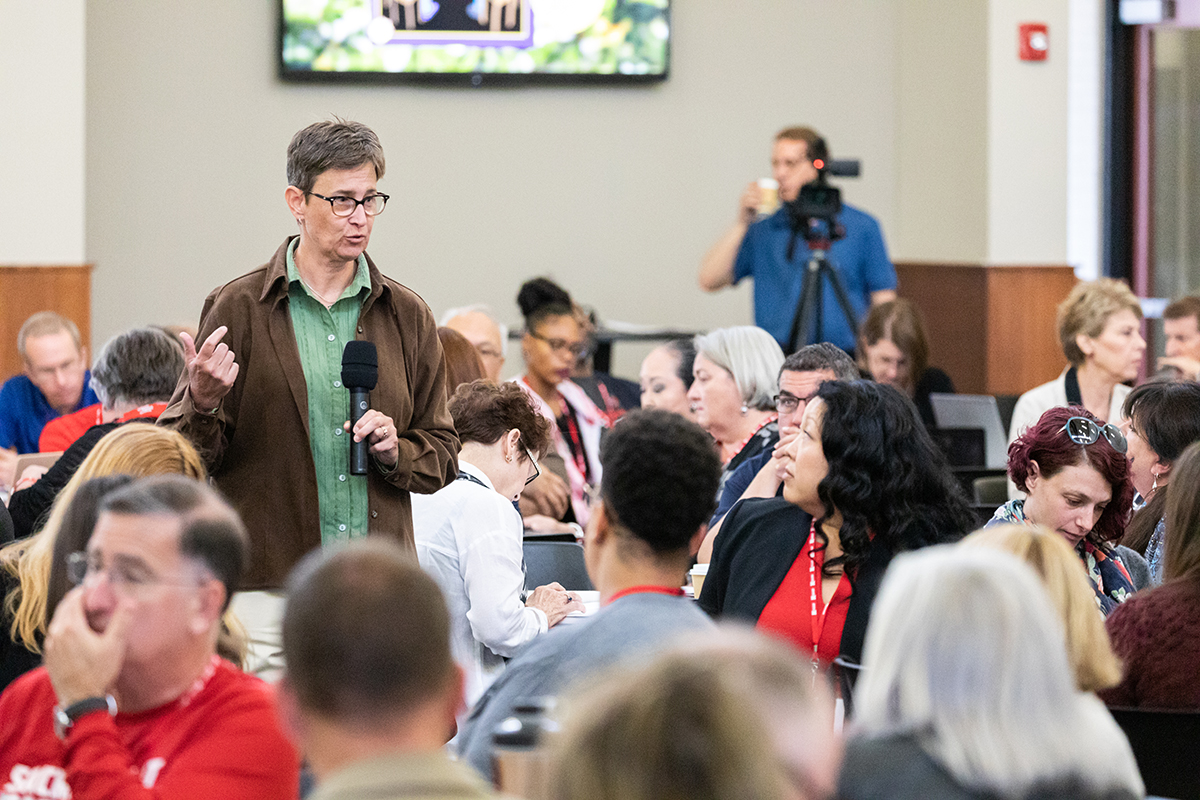Frequently Asked Questions

The following are answers to FAQs we receive about:
Membership FAQ
How do I join CPED?
-
Membership is by institution only. Applications for new member institutions open on an annual basis, usually in the spring, with new member faculty joining our October convening.
Broadly, admission for membership is based on:
- The college or school of education current doctoral reform efforts,
- A demonstrated commitment to the agenda,
- A connection of the pilot or experimental program to other on-going efforts of the school or college,
- A potential for showcasing efforts to others,
- The administrative support and other resources for documentation, engagement and cooperation.
Once your university is a member, any and all institution faculty, administrators and students are allowed to participate in CPED (see below for adding an individual to your membership profile). For more information see How to Join.
- What are the benefits and requirements of membership?
-
- What are the CPED annual membership dues?
-
Annual dues for member institutions is $2500. Institutions are billed in mid-spring and due by August 1st.
- How can I add a colleague to our institutional membership?
-
While CPED membership is by institution, accounts to access our website are by individuals. Please contact us with your university email and position to request a log in.
- What resources does CPED offer its members?
-
CPED supports its members in EdD program design and promotion with several resources that can be found on our website Resources section. These include program design tools, resources from our convenings, a toolkit for program marketing, publications and a job postings board.
- What is a CPED Delegate?
A CPED Delegate is what we term the primary contact at a CPED member institution. In this role, the delegate will serve as the primary contact between CPED and the member institution to: - Provide updated institutional information - Support CPED learning/attend convenings - Drive/Support the work of EdD improvement at the institution - Serve on the Delegates Council
What kinds of events does CPED offer for non-members?-
CPED offers presentations at national conferences like AERA, AACTE and UCEA. Additionally, we are working on a workshop to introduce non-members to CPED. More information will be available soon.
ABOUT CPED EVENTS & CONVENINGS
- When and where are convenings?
-
CPED holds one convening each year in October. Convenings are hosted by CPED member institutions and are open to CPED members only.
- Are convenings open to non-members?
-
No. Convenings are only open to faculty, staff, and students of CPED member institutions. If you are interested in membership, see our membership page. If you are interested in other CPED events see the calendar on our website.
- Who from our institution should attend a convening?
-
Since CPED is primarily a professional development opportunity, your representative(s) should be key participants in the (re)design of your EdD program. Faculty who teach and advise EdD students generally gain the most out of the convenings. Deans and students (both EdD and PhD) also have much to learn.
- Is participation in CPED convenings mandatory?
-
Member institutions must be willing to send at least one representative to each of the two annual CPED Convenings. Please reference the CPED Member Commitment to Engage & Change found on the governance page of our website for further details.
- Can our institution host a convening?
-
Yes. If your institution is interested in hosting a convening, please review our Convening Planning Manual and complete the Convening Host Application. You may also contact us to express your interest.
- What other events does CPED offer?
-
CPED annually participates in the following conferences by presenting papers, hosting sessions, and holding member meetings:
- American Association of Colleges for Teacher Education (AACTE)
- American Educational Research Association (AERA)
- Carnegie Foundation Summit on Improvement in Education
- University Council for Educational Administration (UCEA)
Top
|